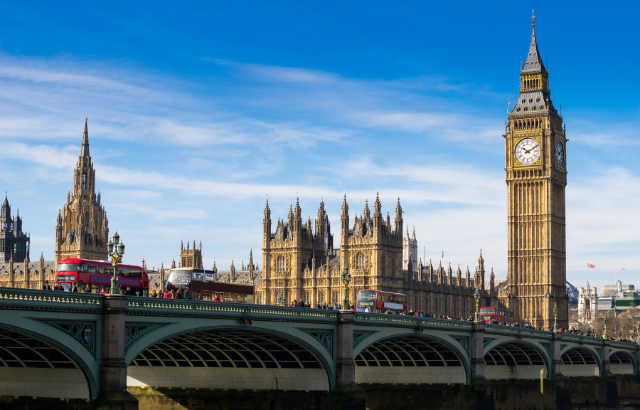Collective action is needed for threats such as the Covid-19 pandemic, Queen Mary Professor warns Parliament
Professor Sophie Harman from Queen Mary University of London’s School of Politics and International Relations has given evidence to the House of Lords International Relations and Defence Committee on the funding and governance of the World Health Organisation (WHO).

The Palace of Westminster
During the session, Professor Sophie Harman, Professor in International Politics and an expert in global health security, defended the response of the WHO during the Covid-19 pandemic. She argued that the core functions around the WHO’s International Health Regulations (IHR2005) are fit for purpose. “Its functions around the health regulations are fit for purpose. The first two elements of that, getting states to detect and report, and build capacity, do work,” she said.
Global response needed to a global threat
Professor Harman explained to the committee that when it comes to the IHR, the WHO does not have compliance powers as such, but that it is only a minority of states that do not adhere to reporting outbreaks. Professor Harman explained: “The WHO exists to respond to the collective threat of health emergencies and this therefore does require a collective endeavour. This is absolutely vital, we can’t have states going it alone because it won’t work and it won’t protect those states’ citizens.”
“The WHO’s functional operations do succeed. We do see a high level of functional cooperation and it is very effective at drawing on wider epistemic communities in global health including global health researchers and public advocates,” she added.
During the session Professor Harman was also asked whether she believes the WHO as an institution has the right priorities. “The mandate for the WHO has grown since 1948. The institution does have the right priorities in building health systems and universal health coverage because they are the bedrock of any response to any health emergency. You can’t actually separate the two and I think any calls to do so would be really dangerous and defeat the purpose of responding effectively to health emergencies,” said Professor Harman.
Human Rights, China and the WHO
Professor Harman was also questioned about human rights and global health as well as the current situation in China. She explained: “This question points to a really important issue of global health and human rights. This is not limited to China. It happens when you see human rights abuses under lockdown or quarantine measures, and it is about how you balance those factors. We know that when certain forms of lockdown are implemented there is a higher risk of violence. How do you account for that? That is one thing which the WHO has been a bit slow to adapt to. However, it works with its partner organisations such as the UN Population Fund and UN Women to address some of those issues.”
The panel also asked witnesses about the WHO’s work with China, as well as the country’s performance when it comes to human rights. “This is a wider question of China’s human rights record. It is not just what is happening with the silencing of whistleblowers in China but what is happening with the Uighur community, and obviously with Hong Kong at the moment: something very much on the UK Government’s mind at present,” Professor Harman said.
“The international community has to think about this more broadly. I would also stress the importance of the UN General Assembly and the Security Council, as well as the human rights bodies of the UN, in investigating this as part of their work. This might be in the report on the WHO’s involvement in the relationship with China in response to COVID-19. The Director-General or the leadership of the WHO coming out and speaking to this would be not helpful at the moment. We need someone independent to look at these issues. My response is very much that this is a really critical human rights and global health issue, and it is beyond the WHO, although that is not to exempt it from any complicity it has had in this regard,” she added.
Lessons learned but challenges ahead
Professor Harman explained that as well the United States’ withdrawal from the organisation, the Covid-19 pandemic exacerbates challenges to the funding model of the WHO. However, she also added that lessons have been learned from previous pandemics. She explained: “Health emergencies do affect the day to day running of the WHO. It has learned from previous emergencies not to let the emergency take over. It is aware of how vaccination programmes for example can be affected. Balancing priorities will come down to how it is funded and how member states get behind the WHO.”
“Lessons learned are around timeliness, the importance of identifying the threat and calling public attention to this. In addition, non-state reporting mechanisms are in place to try and get around this issue of state compliance with the regulations,” added Professor Harman.
During the discussion Professor Harman also highlighted that the countries which have followed WHO guidance in relation to Covid-19 appear to have managed it better. “They have put surveillance in place such as constant tracking and tracing. If anything the problem is the WHO was focused on strengthening health systems in low income countries and took for granted that those with strong health systems would just comply.”
The Committee also discussed an apparent lack of transparency when it comes to the WHO, something Professor Harman did not agree with. She said “I reject this idea that it is not transparent. They have daily briefings, a very public role of the director general, more so than we’ve seen before.” She also highlighted that there have been 23 member state briefings and pointed out that the minutes of all technical working groups are also available.
Professor Harman added: “I know of no other health organisation that gets so much criticism as the WHO, and responds to so much criticism […] Blaming the WHO is going to turn the whole idea of global health security on its head. Like the UN, WHO is about collective security in response to a collective threat. If we see states trying to follow national programmes or withdrawing from these institutions then this is not going to help anybody, it is going to exacerbate this threat.”
More information
- Watch Professor Harman giving evidence to the House of Lords International Relations and Defence Committee
- Study Politics and International Relations at Queen Mary.
Related items

10 December 2024

9 December 2024

6 December 2024
For media information, contact: